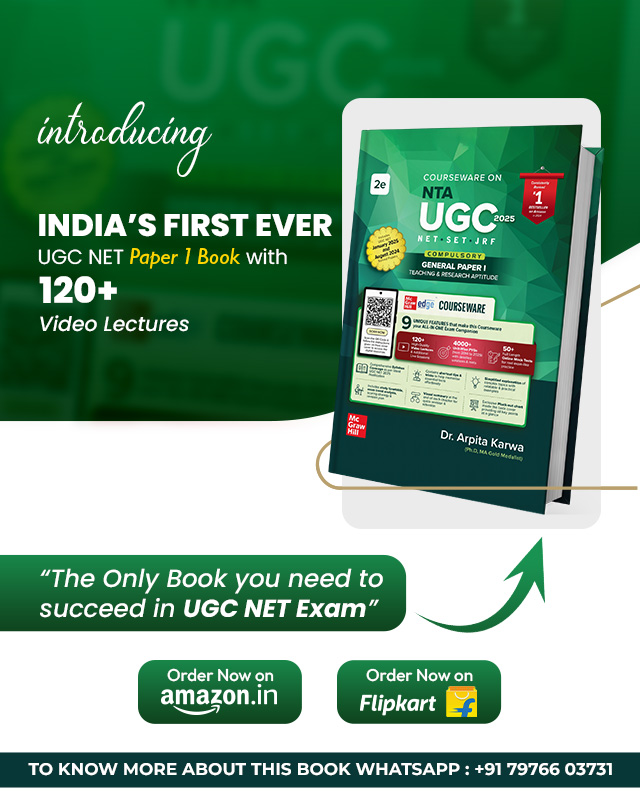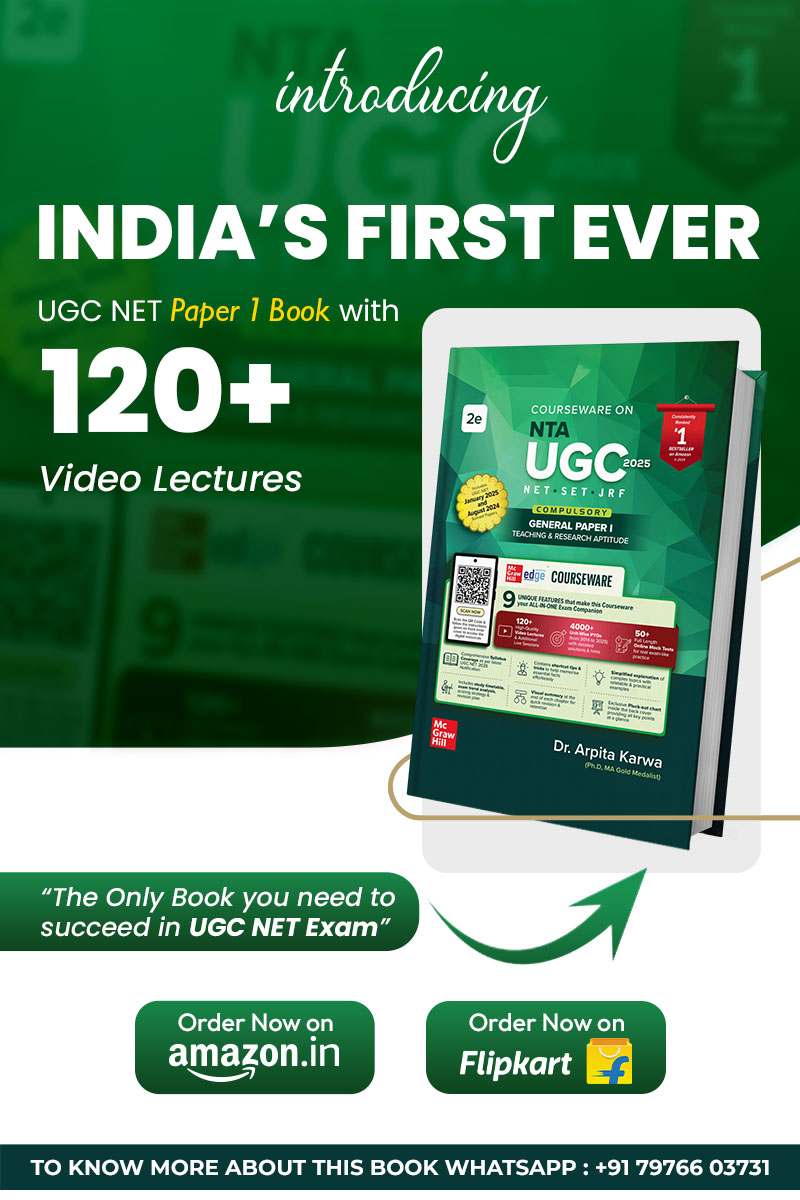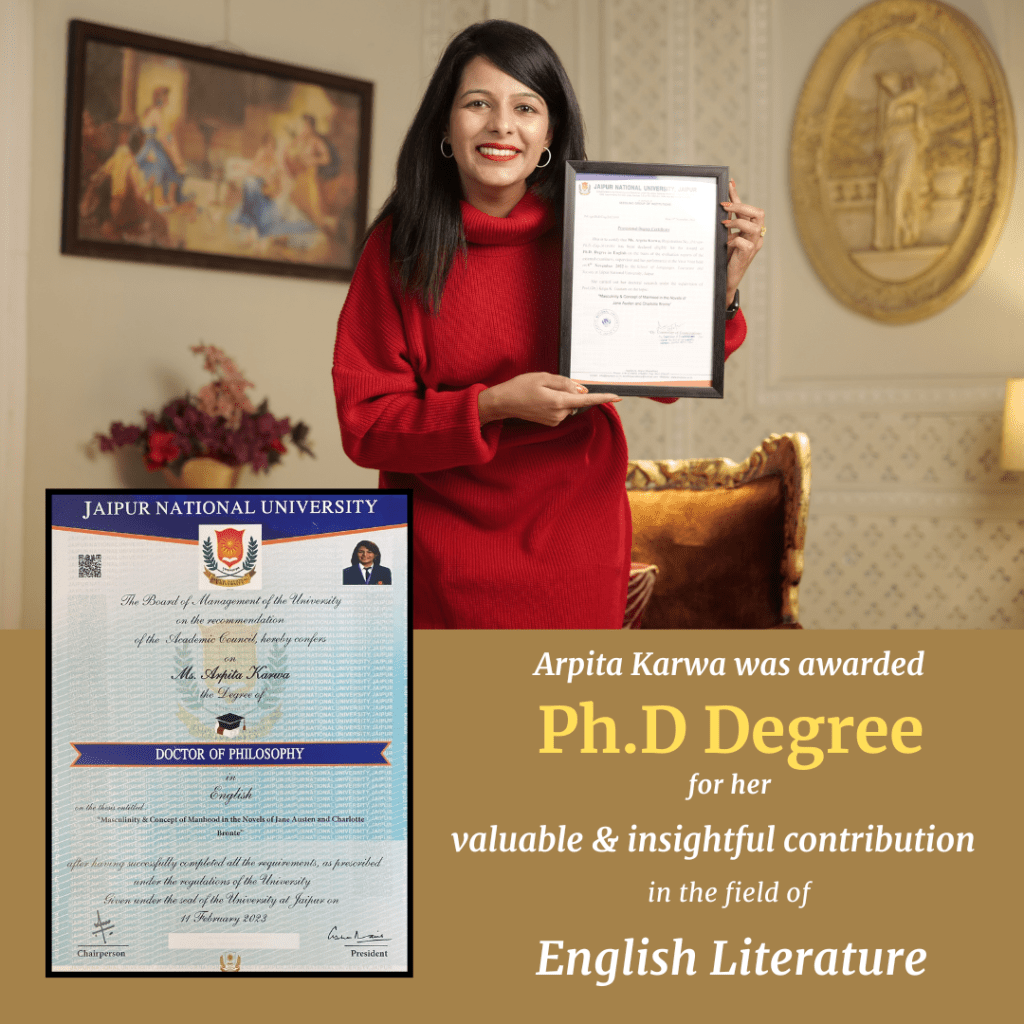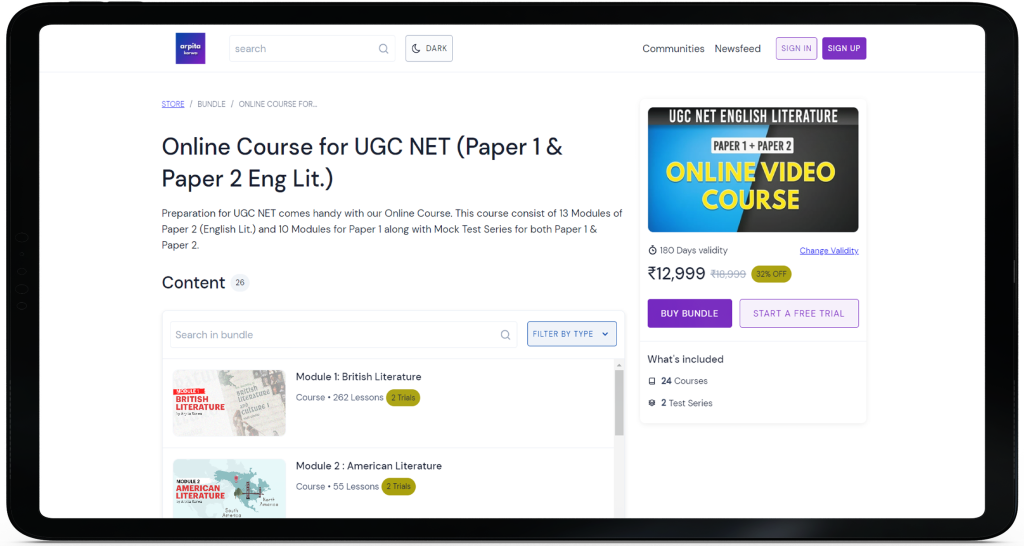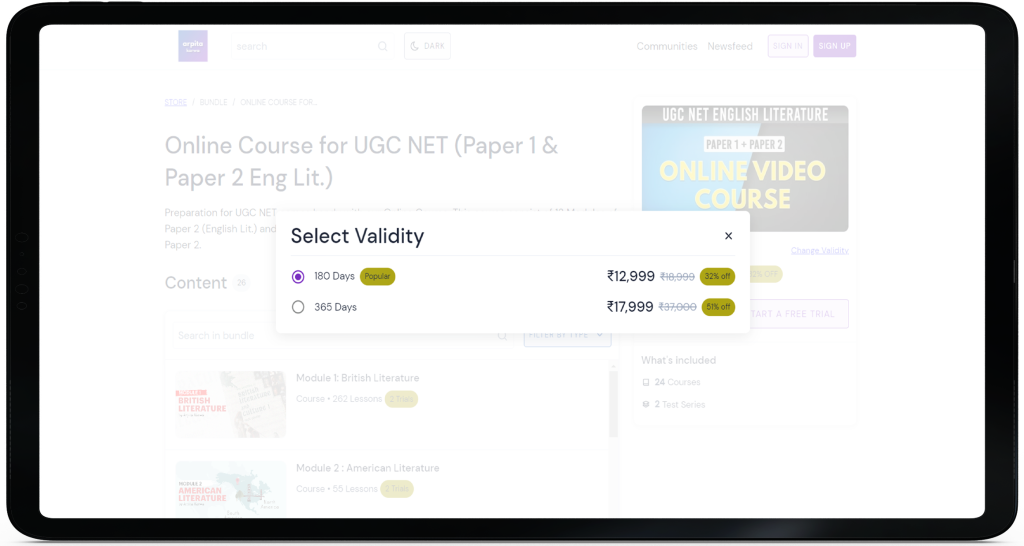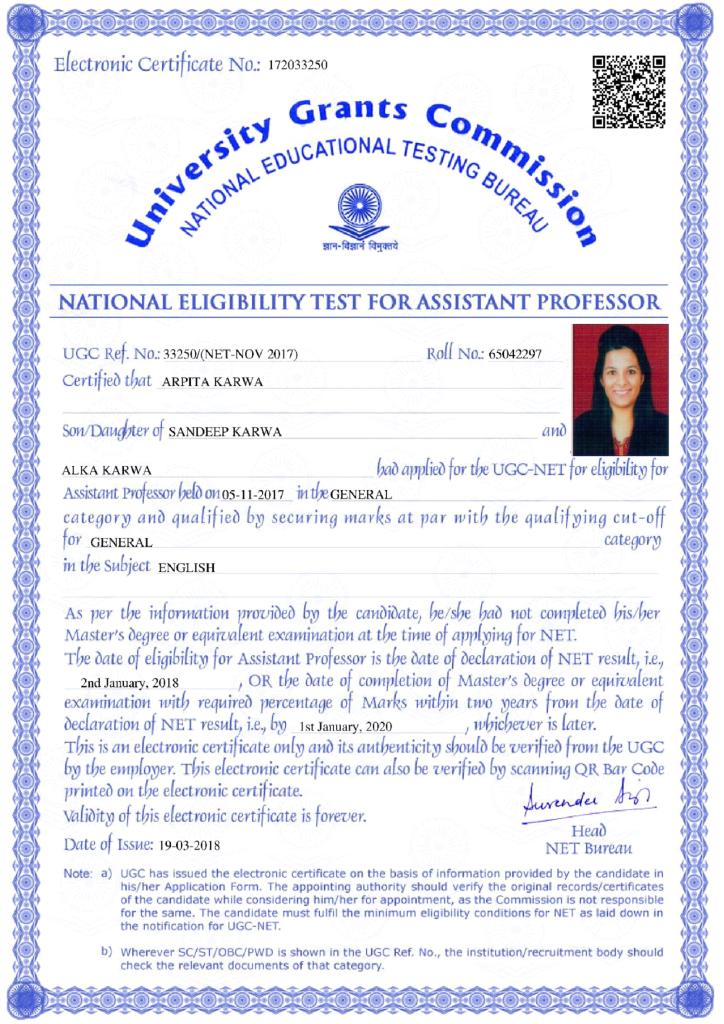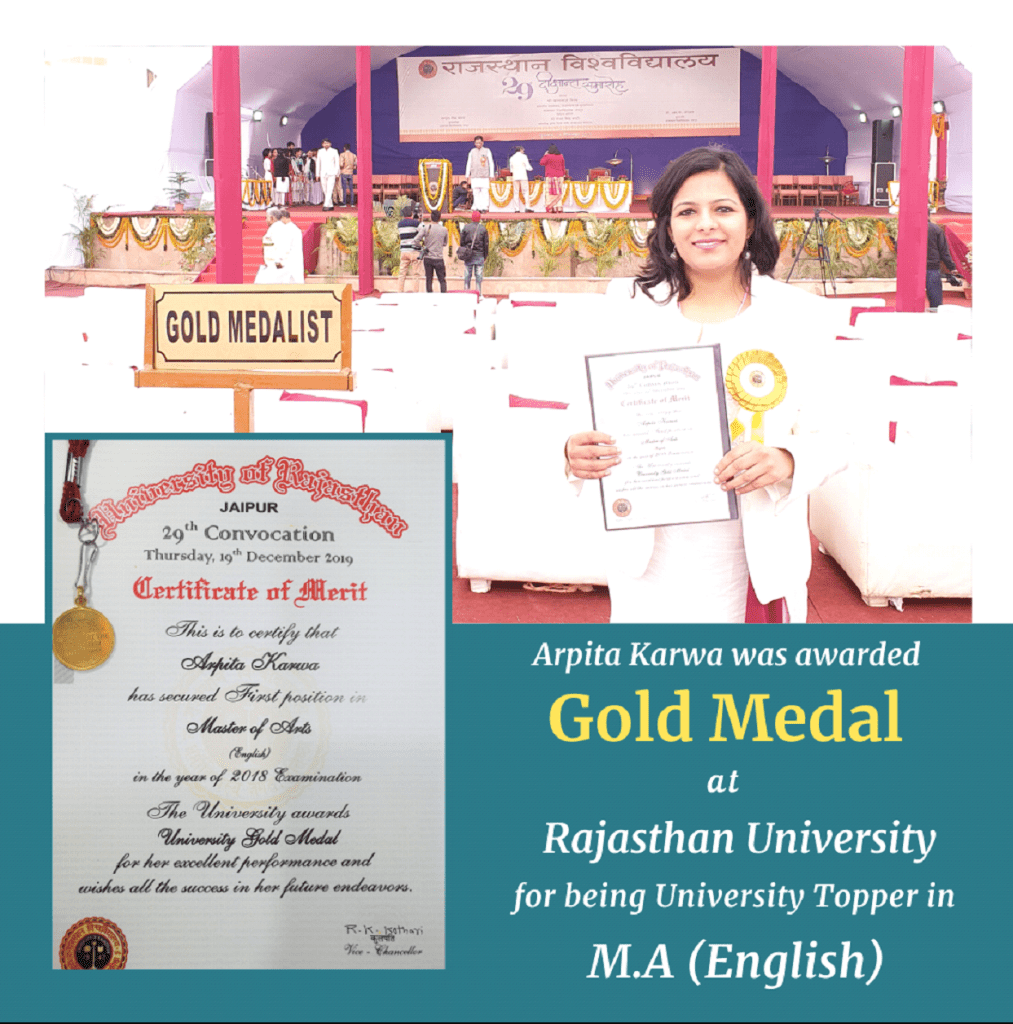TGT (2009)
June 19, 2023 2023-12-05 19:41TGT (2009)
TGT (2009)
PAPER OF 2009
Q.1) The given passage speaks about
[1] The sign of a good manager
[2] The workers doing their job
[3] Ways in which to produce a higher quality product
[4] The need to be open to new ideas.
Answer: The sign of a good manager
Q.2) We understand from the passage that a good manager is one
[1] Who has a department where everybody is busy at work
[2] Who offers a cash bonus, time off or a gift to his workers
[3] Who is open minded and receptive to new ideas
[4] Who is too quick, too eager to show off his experience and knowledge.
Answer: Who is open minded and receptive to new ideas
Q.3) People merely ‘doing their job’ in the passage means
[1] That people busy at work do not perform their assigned tasks
[2] That such people produce a higher quality product
[3] That such people are working at about half quality potential
[4] That such people are innovative
Answer: That such people are working at about half quality potential
Q.4) In a truly productive department
[1] People are busy at work on their assigned tasks
[2] People are busy at work to produce a large quantity of product
[3] People always think of evolving better and more efficient methods of working
[4] People always make a show of their experience and knowledge.
Answer: People always think of evolving better and more efficient methods of working
Q.5) The word ‘motivation’ in the passage means
[1] To impute a motive to an action
[2] The act of inspiring others
[3] To put a thing into action
[4] None of the these
Answer: The act of inspiring others
Q.6) ‘To be receptive to new ideas’ in the passage suggests
[1] Readiness to receive new ideas
[2] To be cautions and careful about the new ideas
[3] To share with your people the new ideas
[4] To think of better and more efficient methods of working.
Answer: To share with your people the new ideas
Q.7) The word ‘incentive’ in the context of the passage suggests
[1] To produce higher quality product, in less time
[2] To produce higher quality product, at lower cost
[3] An additional payment or additional facilities to employees to increase production
[4] Employee’s faith that management does listen to his suggestions and ideas.
Answer: An additional payment or additional facilities to employees to increase production
Q.8) A truly productive employee, according to the writer, is always
[1] Busy at work on his assigned tasks
[2] Actively thinking of better and more efficient methods of working
[3] Has an eye on a cash bonus, time off, or a gift
[4] Suggesting but never busy at work.
Answer: Actively thinking of better and more efficient methods of working
Q.9) The innovative suggestions or new ideas from your employee can be obtained when
[1] You offer a cash bonus to him
[2] You make him feel that management does listen to him or her and puts his ideas to work
[3] You distrust his experience and knowledge
[4] You pressurize him to tender new ideas or face the consequences.
Answer: You make him feel that management does listen to him or her and puts his ideas to work
Q.10) A good manager should
[1] Be open-minded and receptive to new ideas
[2] Quickly shoot down innovative suggestions from an employee to assert supremacy of his experience and knowledge
[3] Discard innovative ideas dubbing them unworkable
[4] Be content with the normal functioning of the department
Answer: Be open-minded and receptive to new ideas
Q.11) A………. soldier fights for the sake of money.
[1] Materialistic
[2] Pioneer
[3] Veteran
[4] Mercenary
Answer: Mercenary
Q.12) The road to hell is……. with good intentions
[1] Decorated
[2] Engraved
[3] Paved
[4] Crowded
Answer: Paved
Q.13) Laws grind the……….and rich man rule the law.
[1] Criminals
[2] Poor
[3] Innocents
[4] Destitutes
Answer: Poor
Q.14) It is not possible for everyone to………….an elephant.
[1] Keep up
[2] Keep up with
[3] Keep in
[4] Keep on
Answer: Keep up
Q.15) Our college building has a good…………
[1] Sight
[2] Site
[3] Cite
[4] Side
Answer: Site
Q.16) Shakespeare is indebted to one of the following sources for the subject matter of his some plays. Choose the right one from the following:
[1] The Arabian nights
[2] Holinshed’s chronicle
[3] Bewoulf
[4] The arthurain legends
Answer: Holinshed’s chronicle
Q.17) One of the following poets was nicknamed ‘The lady of christ’s’ by his fellow undergraduates. Spot the correct name of the poet.
[1] Milton
[2] Spenser
[3] Shakespeare
[4] Marlowe.
Answer: Milton
Q.18) ‘When the assault was intended to the city’ is a sonnet written by
[1] Milton
[2] Wordsworth
[3] Shakespeare
[4] Spenser.
Answer: Milton
Q.19) Which play of Shakespeare portrays the character of Malvolio?
[1] Love’s labour lost
[2] Twelfth night
[3] Hamlet
[4] As you like it
Answer: Twelfth night
Q.20) ‘On the morning of Christ’s nativity’ is a
[1] Sonnet
[2] Ode
[3] Masque
[4] Pastoral elegy.
Answer: Ode
Q.21) Which of the following, is a work of Milton?
[1] Novum organum
[2] De doctrina christana
[3] Endymion
[4] Prothalmion
Answer: De doctrina christana
Q.22) What figure of speech has been used in the following line?
‘Rascals and rogues ran a race round and round the rugged rock’
[1] Hyperbole
[2] Alliteration
[3] Onomatopoeia
[4] Apostrophe.
Answer: Alliteration
Q.23) Choose the correct word to complete the given proverb:
Barking dogs………. bite.
[1] Sometimes
[2] Seldom
[3] Always
[4] Never.
Answer: Seldom
Q.24) What is the antonym of ‘manly’?
[1] Feminine
[2] Effeminate
[3] Masculine
[4] Strong.
Answer: Effeminate
Q.25) What figure of speech has been used in the following line? ‘Frailty, thy name is women!’
[1] Metaphor
[2] Personification
[3] Apostrophe
[4] Simile.
Answer: Apostrophe
Q.26) ‘Venus and Adonis’ is a poetic composition of a poet who was a dramatist also:
[1] Shakespeare
[2] Milton
[3] Marlowe
[4] Dryden.
Answer: Shakespeare
Q.27) ‘For a handful of silver, he left us.’ This line of browning has a reference to
[1] Shakespeare
[2] Wordsworth
[3] Tennyson
[4] Dryden
Answer: Wordsworth
Q.28) A bend in the Ganges is a work of
[1] Anita Desai
[2] Amitav Ghosh
[3] Manohar Malgonkar
[4] M.R. Anand.
Answer: Manohar Malgonkar
Q.29) Pick out the right option which expresses the meaning of word ‘Invaluable’.
[1] Valueless
[2] Priceless
[3] Useless
[4] Cheap
Answer: Priceless
Q.30) The following sentence has a blank space and four words given after the sentence. Select whichever word you consider most appropriate for the blank space.
‘The doctor said that a small daily………. of the new drug would soon cure him’
[1] Tablet
[2] Pill
[3] Dose
[4] Quantity
Answer: Dose
Q.31) Correct form of the sentence,’I have often found him negligent……..his work.’ Is
[1] I have often found him negligent in his work
[2] I have often found him negligent of his work
[3] I have often found him negligent to his work
[4] I have often found him negligent with his work
Answer: I have often found him negligent in his work
Q.32) During his visit to France, Wordsworth fell in love with a girl named
[1] Catherine
[2] Mary Hutchinson
[3] Annette Vallon
[4] Simon lee.
Answer: Annette Vallon
Q.33) “The fall of………in 1453 marks the beginning of renaissance in Europe.” Choose the correct alternative to fill in the blank in the above sentence:
[1] Bastille
[2] The roman empire
[3] The Spanish armada
[4] Constantinople.
Answer: Constantinople
Q.34) Who wrote the following about Shakespeare? ‘others abide our question, thou art free.’
[1] T.S. Eliot
[2] Arnold
[3] Blake
[4] Wordsworth.
Answer: Arnold
Q.35) The figure of speech in which the sound suggests the sense or meaning is known as
[1] Alliteration
[2] Onomatopoeia
[3] Oxymoron
[4] Transferred epithet.
Answer: Onomatopoeia
Q.36) Punctuate the following sentence. ‘She called out angrily so you have been hitting Makhan again phatik answered indignantly no I have not who told you that’ Find out the correct option__
[1] She called out angrily, so you have been hitting Makhan again, phatik answered indignantly, ‘no, I have not, who told you that.’
[2] She called out angrily, ‘so you have been hitting Makhan again.’ Phatik answered indignantly, ‘no, I haven’t, who told you that.’
[3] She called out angrily, ‘so you have been hitting Makhan again?’ phatik answered indignantly. ‘no, I haven’t; who told you that?’
[4] She called out angrily, ‘so you have been hitting Makhan?’ again phatik answered indignantly. ‘no, I haven’t. who told you that?’
Answer: She called out angrily, ‘so you have been hitting Makhan again?’ phatik answered indignantly. ‘no, I haven’t; who told you that?’
Q.37) Select the word with its correct spelling:
[1] Vaccum
[2] Vaccume
[3] Vaccuum
[4] Vacuum.
Answer: Vacuum
Q.38) Who calls Milton ‘god-gifted organ-voice of England’?
[1] Arnold
[2] Wordsworth
[3] Gray
[4] Tennyson
Answer:
Q.39) Name the critic who remarks “justice (1910) is a commentary upon the prison administration of that period.”
[1] Coats
[2] A.C. Ward
[3] A. Nicoll
[4] Skemp.
Answer: A.C. Ward
Q.40) What does the idiom (the) pros and cons mean?
[1] Changes of life
[2] The arguments urged for and against a thing
[3] Irregularly
[4] Repeatedly
Answer: The arguments urged for and against a thing
Q.41) Select from the following the correct meaning of the word ‘Nostalgia’
[1] A fatal disease
[2] Longing for things that are past
[3] An allegorical story
[4] A state of excessive fear and anxiety.
Answer: Longing for things that are past
Q.42) Choose the correct animal cry to complete the sentence: ‘Dogs bark, lions roar but frogs……
[1] Coo
[2] Bleat
[3] Croak
[4] Cluck
Answer: Croak
Q.43) A figure of speech in which a qualifying adjective is sometimes transferred from a person to a thing or from one word to another, to which it does not strictly belong, is called
[1] Metonymy
[2] Transferred epithet
[3] Apostrophe
[4] Personifiction
Answer: Transferred epithet
Q.44) Find out the mis-spelt word.
[1] Accompaniment
[2] Explaination
[3] Superstitious
[4] Miscellaneous.
Answer: Explaination
Q.45) Choose the correct spelling of the word.
[1] Restaurant
[2] Restaurant
[3] Resteurant
[4] Restorant
Answer: Restaurant
Q.46) Which, of the following words, means ‘a place where the birds of kept’?
[1] Aquarium
[2] Zoo
[3] Amnesty
[4] Aviary
Answer: Aviary
Q.47) Which of the following plays, is not written by Galsworthy?
[1] The silver box
[2] Joy
[3] Weavers
[4] A doll’s house
Answer: A doll’s house
Q.48) ‘Every great poet is a teacher’ are the words of
[1] Shelley
[2] Keats
[3] Byron
[4] Wordsworth
Answer: Wordsworth
Q.49) The restoration period was influenced by
[1] French dramatists
[2] The dramatists of England
[3] Italian dramatists
[4] Greek dramatists
Answer: French dramatists
Q.50) Punctuate the following lines:
‘As Caeser loved me, I weep for him as he was fortunate, I rejoice at it as he was valiant, I honour him but as he was ambitious, I slew him’
[1] As Caeser loved me, I weep for him, as he was fortunate, I rejoice at it, as he was valiant, I honour him but as he was ambitious, I slew him.
[2] As Caeser loved me, I weep for him as he was fortunate, I rejoice at it as he was valiant, I honour him but as he was ambitious, I slew him.
[3] As Caeser loved me, I weep for him; as he was fortunate, I rejoice at is; as he was valiant, I honour him but—as he was ambitious, I slew him
[4] As Caeser loved me I weep for him; as he was fortunate I rejoice at is; as he was valiant I honour him but as he was ambitious I slew him.
Answer: As Caeser loved me, I weep for him; as he was fortunate, I rejoice at is; as he was valiant, I honour him but—as he was ambitious, I slew him
Q.51) Find out the figure of speech in the following lines: ‘Is this the face that launched a thousand ships, and burned the topless towers of lilium?’
[1] Personification
[2] Hyperbole
[3] Metaphor
[4] Oxymoron.
Answer: Hyperbole
Q.52) The first Indian author to win the prestigious Pulitzer prize in the U.S.A was
[1] Anita Desai
[2] Jhumpa Lahiri
[3] Vikram Seth
[4] Khushwant Singh
Answer: Jhumpa Lahiri
Q.53) What is the antonym of ‘consent’?
[1] Descent
[2] Dissent
[3] Decent
[4] Assent
Answer: Dissent
Q.54) Select the right meaning of the word ‘Aristocracy’ from the following:
[1] Government by the rich
[2] Government by the nobles
[3] Government by the officials
[4] Rule by mob.
Answer: Government by the nobles
Q.55) Select, from the following, the name of the author on whose grave the words he chose himself are carved: ‘Here is one whose name is writ in watter.’
[1] Keats
[2] Byron
[3] Milton
[4] Swineburne
Answer: Keats
Q.56) The father
[1] As well as
[2] The sons were
[3] Involved in the number
[4] No error
Answer: The sons were
Q.57) He could
[1] Not give cattle
[2] Green fodder today because
[3] He has broken his right hand a week ago
[4] No error
Answer: He has broken his right hand a week ago
Q.58) What to
[1] Talk of charity
[2] You do not practice
[3] Even ordinary humanity
[4] No error
Answer: Talk of charity
Q.59) I am
[1] Very thirsty
[2] Give me little water
[3] To drink
[4] No error
Answer: Give me little water
Q.60) You and
[1] Your wife
[2] Appear to have seen
[3] Much more happier days
[4] No error
Answer: Much more happier days
Q.61) Nobody was
[1] Prepared
[2] To give up their seat
[3] To the old man bending on a stick
[4] No error
Answer: To give up their seat
Q.62) The price
[1] Of this car
[2] Is higher than
[3] Your new car
[4] No error
Answer: Your new car
Q.63) No sooner
[1] The bell rang
[2] Than all students ran out
[3] Of their classes helter-skelter
[4] No error
Answer: The bell rang
Q.64) The principal,
[1] Along with teachers
[2] Were invited
[3] On the occasion
[4] No error
Answer: Were invited
Q.65) Suresh asked
[1] Akbar
[2] When could he
[3] Reach Kanpur
[4] No error
Answer: When could he
Q.66) ‘Docile’ means
[1] Vague
[2] Gentle
[3] Stupid
[4] Stubborn.
Answer: Gentle
Q.67) ‘Enigmatic’ is
[1] Displeased
[2] Puzzling
[3] Learned
[4] Short-sighted.
Answer: Puzzling
Q.68) ‘Alleviation’ is the antonym of
[1] Lessening
[2] Magnification
[3] Aggravation
[4] Exaggeration
Answer:
Q.69) ‘Deviate’ is the antonym of
[1] Obliviate
[2] Break
[3] Concentrate
[4] Follow
Answer: Concentrate
Q.70) ‘Inevitable’ bears the opposite meaning of
[1] Unavoidable
[2] Eatable
[3] Uncertain
[4] Mutilated.
Answer: Uncertain
Q.71) A good judge never jumps…..the conclusion.
[1] At
[2] For
[3] To
[4] On
Answer: At
Q.72) Such remarks are certainly derogatory……your reputation.
[1] For
[2] To
[3] With
[4] Of
Answer: To
Q.73) Minority aspirations cannot forever be kept in check……the gun.
[1] By
[2] Through
[3] With
[4] From
Answer: With
Q.74) The sarpanch turned………. the proposal without thinking properly.
[1] In
[2] Out
[3] Up
[4] Down
Answer: Down
Q.75) His story seems to be devoid………truth.
[1] From
[2] Of
[3] To
[4] In
Answer: Of
Q.76) Tick the correct sentence.
[1] Neither ram or Shyam has done it.
[2] Either ram nor Shyam has done it.
[3] Both ram and Shyam has done it.
[4] Neither ram nor Shyam has done it.
Answer: Neither ram nor Shyam has done it
Q.77) Find out the correctly spelt word
[1] Consumpshion
[2] Conjuption
[3] Consumption
[4] Conjumpshan
Answer: Consumption
Q.78) Find out the correctly spelt word.
[1] Aeroplane
[2] Aroplain
[3] Aeroplain
[4] Aeroplane
Answer: Aeroplane
Q.79) The sonnet is a poem of
[1] Ten lines
[2] Twelve lines
[3] Fourteen lines
[4] Sixteen lines
Answer: Fourteen lines
Q.80) Classical tragedy was a form of
[1] Drama
[2] Novel
[3] Prose
[4] Poetry
Answer: Drama
Q.81) Elegy began to be so called because
[1] It was written in the elegiac measure
[2] It was a poem of sorrow
[3] It was written by writers of elegies
[4] Some expert crities named it so
Answer: It was a poem of sorrow
Q.82) The novel is
[1] One of the earliest forms of writing
[2] One of the latest forms of writing
[3] One of the discarded forms of writing
[4] None of these
Answer: One of the latest forms of writing
Q.83) In which play do the following lines occur? “Neither a borrower nor a lender be: For loan oft loses both itself and friend. And borrowing dulls the edge of husbandry.”
[1] Macbeth
[2] The merchant of Venice
[3] Hamlet
[4] King Lear
Answer: Hamlet
Q.84) Choose the correct name of the play (from those given) from which the following lines have been taken:
“We are such stuff as dreams are made of, and our little life is rounded with a sleep.”[1] The tempest
[2] Othello
[3] Macbeth
[4] Cariolanus
Answer: The tempest
Q.85) Who has said it? “One impulse from a vernal wood may teach us more of man, of moral evil and of good than all the sages can.”
[1] Shakespeare
[2] Milton
[3] Galsworthy
[4] Wordsworth
Answer: Wordsworth
Q.86) From which book has it been taken? “To be weak is miserable doing or suffering?”
[1] The tempest
[2] Paradise regained
[3] The prelude
[4] Paradise lost
Answer: Paradise lost
Q.87) One of the following works of Milton is a prose work. Mention that:
[1] Lycidas
[2] Paradise regained
[3] Paradise lost
[4] Areopagitica
Answer: Areopagitica
Q.88) Shakespeare
[1] Was a great scholar of Latin
[2] Knew a lot in Greek
[3] Had a great command over English
[4] Knew little Latin and less Greek.
Answer: Knew little Latin and less Greek
Q.89) The first play by john Galsworthy was
[1] Justice
[2] Loyalties
[3] The skin game
[4] The silver box
Answer: The silver box
Q.90) Which of the following plays does not belong to the group of four great tragedies of Shakespeare?
[1] King Lear
[2] Hamlet
[3] Othello
[4] Twelfth night
Answer: Twelfth night
Q.91) Shakespeare’s play hamlet is influenced by
[1] Marlowe
[2] Kyd
[3] Peele
[4] Nashe
Answer: Kyd
Q.92) The name of Prospero’s daughter in the tempest is
[1] Desdemona
[2] Cordelia
[3] Miranda
[4] Olivia
Answer: Miranda
Q.93) The dominating passion of Macbeth is
[1] Jealousy
[2] Greed
[3] Revenge
[4] Ambition
Answer: Ambition
Q.94) In twelfth night Olivia is over head and ears in love with
[1] Malvolio
[2] Duke Orsino
[3] The clown
[4] Viola disguised as Cesario
Answer: Viola disguised as Cesario
Q.95) Shylock is a character in
[1] As you like it
[2] The merchant of Venice
[3] Twelfth night
[4] Measure for measure
Answer: The merchant of Venice
Q.96) Milton’s paradise lost
[1] Has no trace of personal element
[2] Is notable for its autobiographical passages
[3] Is quite objective
[4] Has none of the above qualities
Answer: Is notable for its autobiographical passages
Q.97) Who is the hero of paradise lost?
[1] God
[2] Satan
[3] Adam
[4] None of them
Answer: Adam
Q.98) The statement, “Others abide our question, thou art free” refers to
[1] John Milton
[2] Edmund Spenser
[3] Christopher
[4] Shakespeare
Answer: Shakespeare
Q.99) Everyman is
[1] An interlude
[2] A comedy
[3] A tragic-comedy
[4] A morality play
Answer: A morality play
Q.100) A dramatic monologue is
[1] A short play
[2] A poem
[3] A novel
[4] A prose story
Answer: A poem
Q.101) What do we call a piece of writing that is an imitation of an action that is serious and complete?
[1] A comedy
[2] A tragic-comedy
[3] A tragedy
[4] None of these
Answer: A tragedy
Q.102) Shakespeare has mostly used in his plays
[1] Heroic couplet
[2] Blank verse
[3] Free verse
[4] Spenserian stanza
Answer: Blank verse
Q.103) “They also serve who only stand and wait.” This line occurs in
[1] Lycidas
[2] Comus
[3] Paradise lost
[4] On his blindness
Answer: On his blindness
Q.104) Name the poem from which the following words have been quoted: The gods approve The depth, and not the tumult of the soul.
[1] The world is too much with us
[2] The tables turned
[3] Ode to duty
[4] Laodamia.
Answer: Laodamia
Q.105) In which play of Galsworthy do we have William falder?
[1] Loyalties
[2] Silver box
[3] Justice
[4] Strife
Answer: Justice
Q.106) Shakespeare is
[1] A renaissance playwright
[2] A restoration playwright
[3] A twentieth century playwright
[4] A classical playwright
Answer: A renaissance playwright
Q.107) Galsworthy belonged to
[1] The sixteenth century
[2] The seventieth century
[3] The twentieth century
[4] The nineteenth century
Answer: The twentieth century
Q.108) Who said it? How poor are they that have not patience, What wound did ever heal but by degrees?
[1] Othello
[2] Cassio
[3] Lago
[4] Desdemona
Answer: Lago
Q.109) Shakespeare wrote
[1] 154 sonnets
[2] 145 sonnets
[3] 451 sonnets
[4] 26 sonnets
Answer: 154 sonnets
Q.110) Milton’s paradise lost has been praised for its
[1] Lightness of touch
[2] Grand style
[3] Its satirical tone
[4] None of these
Answer: Grand style
Q.111) Paradise lost has been divided into………..books
[1] Ten
[2] Nine
[3] Eleven
[4] Twelve
Answer: Twelve
Q.112 Cordelia came to help her father because[1] He had given her the lion’s share of his kingdom
[2] He had deprived her of her share in his kingdom
[3] Out of her genuine love for him
[4] She hated her elder sisters
Answer: Out of her genuine love for him
Q.113) Allusion is
[1] A synonym of reference
[2] A synonym of poetry
[3] An indirect or passing reference to some event, person, place, or artistic work
[4] None of these.
Answer: An indirect or passing reference to some event, person, place, or artistic work
Q.114) A ballad
[1] Is a short epic
[2] Is a song sung by ballet dancers
[3] Is a folk song or orally transmitted poem dealing with a popular story
[4] Is a short novel.
Answer: Is a folk song or orally transmitted poem dealing with a popular story
Q.115) Denouement is related to
[1] An essay
[2] A play
[3] A lyric
[4] An elegy
Answer: A play
Q.116) An eclogue is
[1] A long poem
[2] A short poem
[3] A pastoral poem
[4] A short dialogue
Answer: A pastoral poem
Q.117) Galsworthy’s tragedies are called
[1] Tragic-comedies
[2] Heroic-tragedies
[3] Social-tragedies
[4] Classical-tragedies
Answer: Social-tragedies
Q.118) Samson agonistes by Milton
[1] Is a play
[2] Is a long poem
[3] Is a masque
[4] A long treatise
Answer: Is a play
Q.119) Ben Jonson’s name is associated with
[1] Sentimental comedy
[2] Romantic comedy
[3] Comedy of manners
[4] Comedy of humours
Answer: Comedy of humours
Q.120) Congreve tried his hand at
[1] Romantic comedies
[2] Comedies of humours
[3] Comedies of manners
[4] Farces
Answer: Comedies of manners
Q.121) Who has been termed as a motiveless malignity?
[1] Macbeth
[2] Othello
[3] Lago
[4] Polonius
Answer: Lago
Q.122) Caliban
[1] Is the hero of the play the tempest
[2] Married Prospero’s daughter in the tempest
[3] Killed Prospero in the tempest
[4] Is the villain in the tempest
Answer: Is the villain in the tempest
Q.123) Ophelia is the beloved of
[1] Macbeth
[2] Hamlet
[3] Othello
[4] Romeo
Answer: Hamlet
Q.124) Simile is
[1] A part of speech
[2] A figure of speech
[3] A technical device used by old poets
[4] A sister of Emily Dickinson
Answer: A figure of speech
Q.125) John Galsworthy was awarded the Nobel prize for literature in
[1] 1912
[2] 1922
[3] 1932
[4] 1942
Answer: 1932






